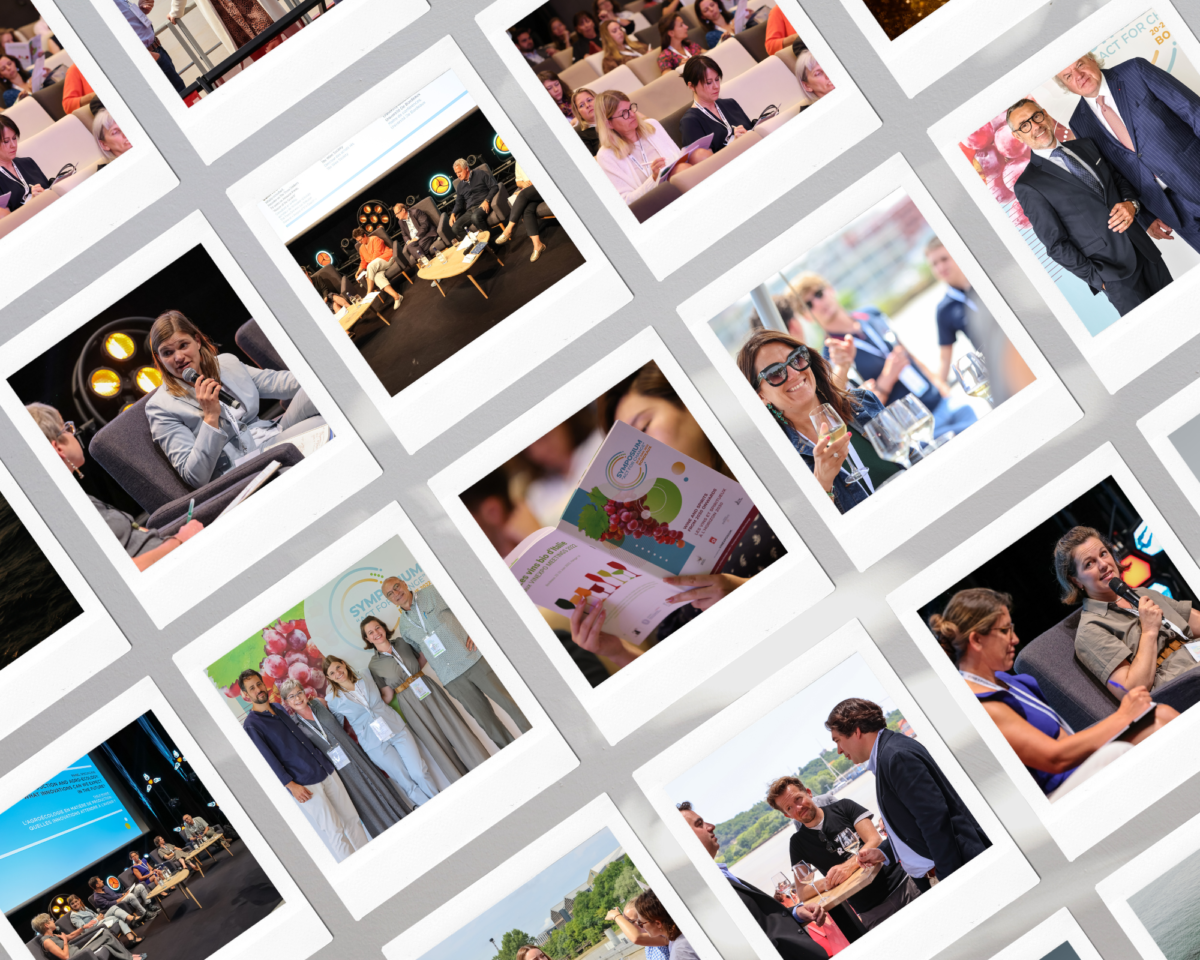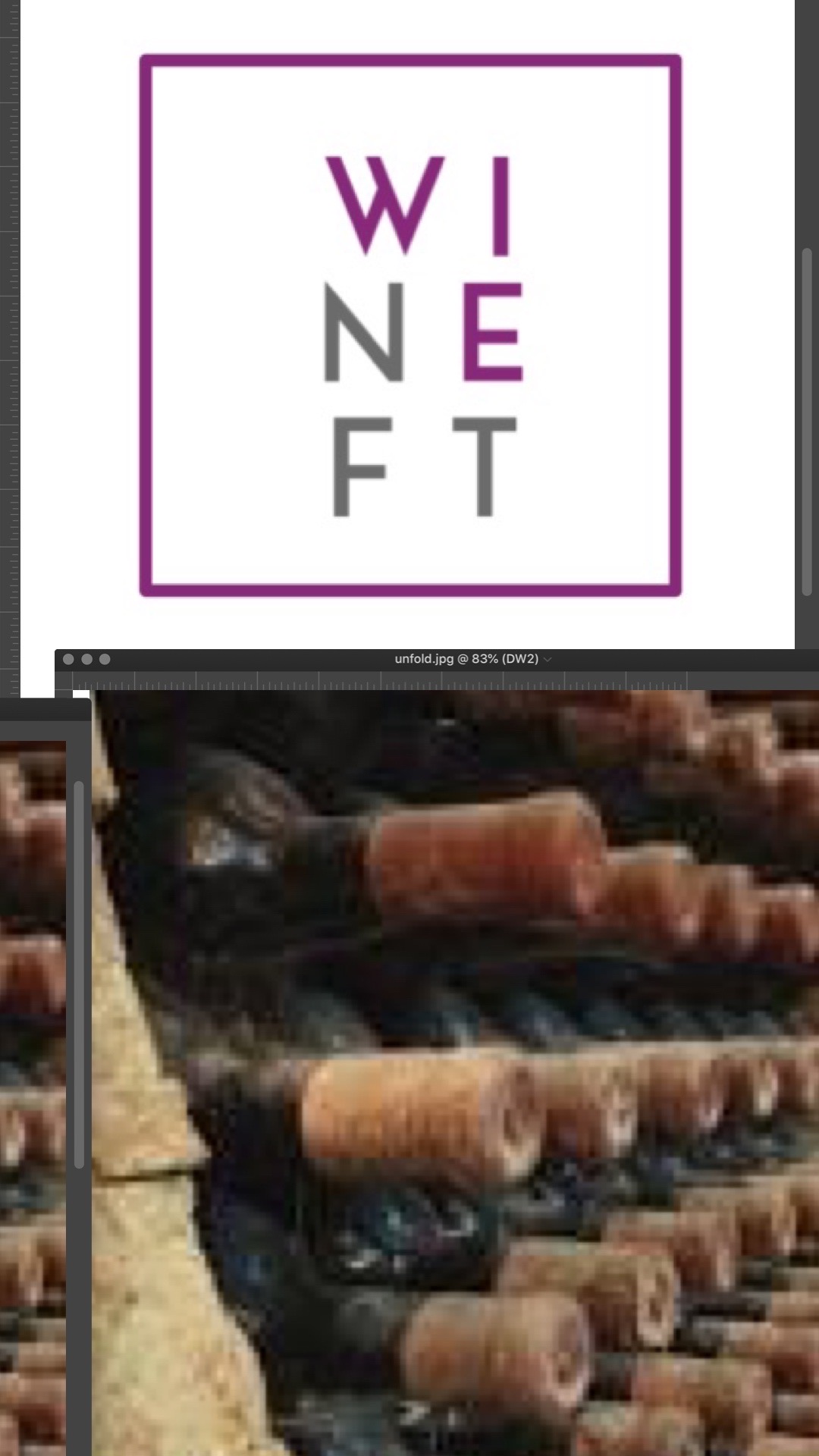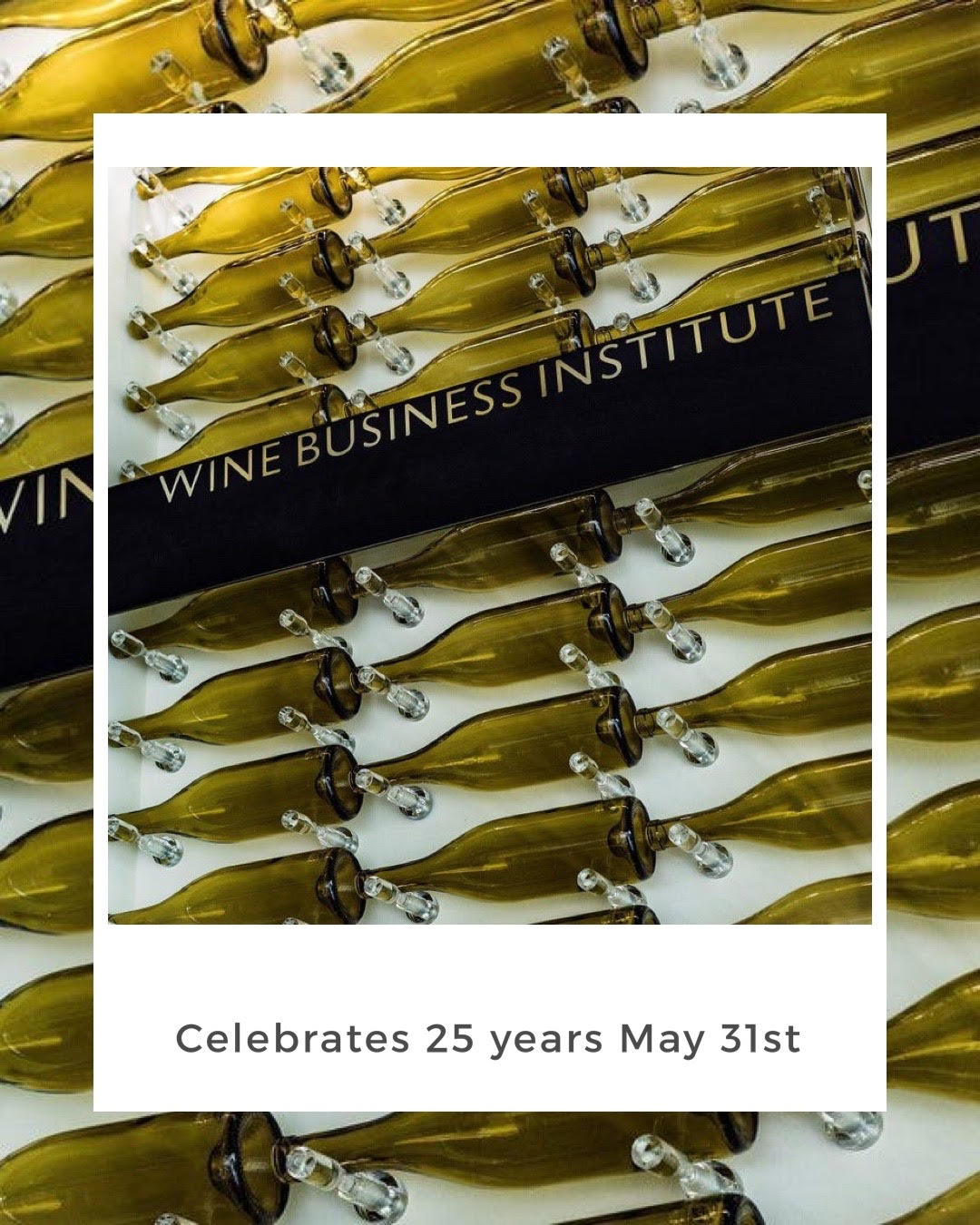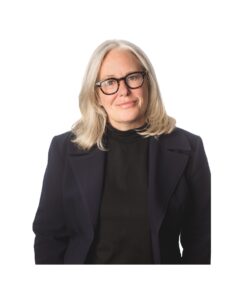Organized by Vinexposium June 20 and 21, 2022 at the Cité du Vin, the Symposium ‘Act for Change’ gathered over 35 international experts representing 17 nationalities for a series of discussions focusing on the future of wines and spirits between now and 2030.
The event, which was held as part of Bordeaux Wine Week, ended on an optimistic note after addressing the main issues affecting the wine and spirits industry. These include changing consumer patterns, the consequences of climate change and their impact on the production and distribution of wine and spirits. Each talk addressed these issues and provided practical insight, both for industry members attending and those who joined the livestream on Vinexposium Connect, the group’s digital portal. Nine major themes were explored by industry players who view the future with pragmatism, ambition, and confidence in a world of experimentation and solutions to cope with the many challenges to come. At the close of the symposium, speakers agreed that the future of the wine industry would be collaborative, innovative and technological, where ethical practices, transparency, knowledge sharing and engagement between the large companies and winegrowers would be promoted.
Here are some observations on the panel discussions and talks:
If fine wines are to have a future, it will be close to nature
Questioned about the future of fine wines, Oliver Bernard shared his views about the changes awaiting the industry. Expressing a mix of enthusiasm and realism, the director of Domaine de Chevalier stressed the importance of reacting immediately to environmental issues, whilst reiterating his confidence in consumers and future generations in celebrating fine wines. Solutions he mentioned included the emergence of new grape varieties for appellation wines, support for estates to switch over to organic and biodynamic winegrowing and adapting vineyard management techniques.
New consumer habits and new sensory profiles
Questioned about flavour and aroma profiles in 2030, Cathy Van Zyl MW, deputy editor of Platter’s South African wine guide, stated that the South African market was in the process of transitioning to lighter wines. Whisky consultant Colin Hampden-White responded by sharing insight into changing spirits styles, which are increasingly flavourful in response to consumer expectations. Pierre Mansour, wine purchasing director for The Wine Society, stressed that 65% of consumers prioritise climate issues in their choice of wines. Many consumers are looking primarily for ‘honest wines’, showing authenticity, viewed as pure site-expressiveness. Honest wines now seem to be establishing themselves as an emerging and growing trend among consumers seeking added value. They are also asking for variety of choice, catering to their own personal consumption habits, and are turning increasingly towards wines that are drier, more unrefined in style, yet remain savoury, and also towards those that pin their environmental credentials to the mast. For spirits, the future is all about creativity, diversity, assertive tastes, and local traceability. New consumers want to be surprised, they are looking for originality and unexpected styles, which can stem either from new distillation techniques or from creative recipes with unfamiliar ingredients. Stéphanie Marchand-Marion, a lecturer at Bordeaux University studies the latest changes in flavour trends, from the consumer perspective and in terms of climate change. She concluded that wines could survive tomorrow’s climate challenges, provided a balance in their composition was found.
Tomorrow’s packaging – where changing consumer patterns, innovation and lower CO2 emissions converge
The challenge for the packaging of the future will be to respond to the divergence between the unquestionable need to reduce the carbon footprint stemming from the manufacturing process and consumer perception of sustainable, environmentally friendly packaging. In the consumer psyche, glass remains a sustainable vessel, whereas the reality is more complex. The results of steps taken to recycle bottles are not significant, providing evidence of the discrepancy between interest shown for ecological issues and a real desire by consumers to change their habits. Lulie Halstaed, Director of Wine Intelligence – IWSR, has noticed this particularly in Australia, where 67% of wine and spirits buyers believe in climate change, but only 21% claim to act responsibly. Rob Malin, the founder of When in Rome, launched the first wine sold in a paper bottle, which emits 6 times less CO2 than a glass bottle. As a reminder, the production of glass accounts for nearly 40% of the industry’s CO2 emissions.
Tomorrow’s packaging will have two roles to play: research work and the move towards more sustainable packaging will need to continue, and bottles must be used as a tool for educating consumers of wine and spirits, which are among the most highly packaged products around.
Digitalization of Wine and Spirits
Cyril Grira, Retail & Omnichannel director at Google France, has seen an acceleration in searches for wines and spirits on the Google search engine, as with ‘organic wines’ that have increased three-fold. He also points to the fact that most consumer searches focus on grape varieties, appellations, and local productions. Yet, lack of consumer knowledge on the topic (80% of searches are generic) and of visibility for small producers are barriers to industry performance. The wine industry would benefit from taking a leaf out of the fashion and beauty industries’ book, where multiple formats are used to innovate and tell stories. At the same time, the online sales outlet must connect better with the physical sales outlet. As regards the metaverse, experts expressed reservations, stressing that wine and spirits are primarily part of real-life experiences.
Winegrowing and climate change: opportunities in the face of adversity
As climate change causes upheavals, techniques and typicities across the wine regions are evolving. During the symposium, it was unanimously agreed that coping with climate change and human resilience in supporting winegrowing would be pivotal to tackling the issue. Varietal diversification, planting grape varieties in suitable locations, rootstock and balanced management were all cited as resources. Viewing the future with optimism and ambition, participants called on the industry to take leadership of climate issues and underscored the significance of a collaborative approach – one of the biggest challenges is to think collectively, as a community, so that existing solutions can be shared more effectively.
Geopolitics, wines and spirits – lessons to be learnt from crises
The war in Ukraine undermines control of global capitalism, with consequences including the risk of entering a recession and the supremacy of the dollar in international trade. A new global geo-economy is in the making. Faced with this changing situation, the ability of wine and spirits businesses to adapt must enable them to grasp new export opportunities, in regions such as Africa for instance, and strengthen their brands and their image. Compliance with local rules and protection of brands and appellations are also drivers of this success. Similarly, the impact of climate change affects the geopolitics of wine and spirits, both in the positions taken by leaders and the viability of a supply chain designed to respond to the ‘just-in-time’ logistics expected by younger generations. As Christophe Navarre, chairman of the board of Vinexposium pointed out, “The impact of climate change on winegrowing will be huge. This is a priority mission for businesses, the choice is no longer ours”.
Agro-ecology and innovation: essential bedfellows
Faced with climate challenges and the need to remain competitive in a constantly changing marketplace, agro-ecology innovations are the future. They already come in a variety of forms, from the open access ‘calculator’ for measuring carbon footprint, use of artificial intelligence for managing farms and optimising aspects such as yields – including solutions provided by Israeli company Trellis – to the introduction of regenerative techniques. Although the latter concept covers a whole galaxy of realities, relevant regulations are rapidly progressing and influencing – sometimes even restricting – winegrowing practices. From high-tech solutions to a return to basics, agro-ecology is reinventing itself at the instigation of stakeholders who aim to make it accessible to the broadest audience.
How e-commerce has upended the relationship with the consumer
Lockdown expedited online buying and revolutionised sales. Fabrice Bernard, president of Millesima, commented on how the internet piqued consumer interest about wines that they usually did not drink. E-commerce has changed buying habits, but without driving customers away from shops. This development is compelling e-commerce players to rethink the way they work by creating new technology tools such as those provided by Preferabli, which uses digital technology to help consumers make choices. “We will witness consolidation in the marketplace, but the biggest change over the next ten years will be the increasing number of businesses focusing on the customer rather than on the product. Shops are not the only place where customers can have physical interactions. Digital technology will allow the magic surrounding the product’s story to be developed faster and technology can help tell these stories”, claimed Pam Dillon, co-founder and CEO of Preferabli. The future of e-commerce seems to mesh with a competitive marketplace where customer service will make all the difference.
The future of wine and spirits in 2030 – wrapping up
The near future will require adjustments to cope with current changes, yet also continued pragmatism, concluded Christophe Navarre, chairman of the board of Vinexposium, who stressed the positive pressure from young people for immediate action in favour of the climate. “Rolling out large-scale, practical actions involves reconciling political agendas, corporate activities, and consumer patterns. This is a complex process. For example, in supermarkets, producers who take positive action are not promoted enough. There is no doubt that this is now one of our missions”, he also pointed out in his concluding remarks at the Symposium ‘Act for Change’.
#actforchange #bordeaux #thesymposium #sustainability #winetrends #winenews #winetrade #vinexposium #CitéduVin #wine #winelovers #winetech #wineconference #wineindustry #wineeducation #wineconsumers #winemarketing #bordeauxwineweek @laciteduvin @vinexposium



![Drone Footage on Mount Etna [The Highest Active Volcano in Europe]](https://www.liz-palmer.com/wp-content/uploads/2022/05/page0-18.jpg)

![Cult Wines Americas – The Future of Fine Wine Investment [Part 1]](https://www.liz-palmer.com/wp-content/uploads/2022/02/Cult-Wines-Liz-Palmer.jpg)



